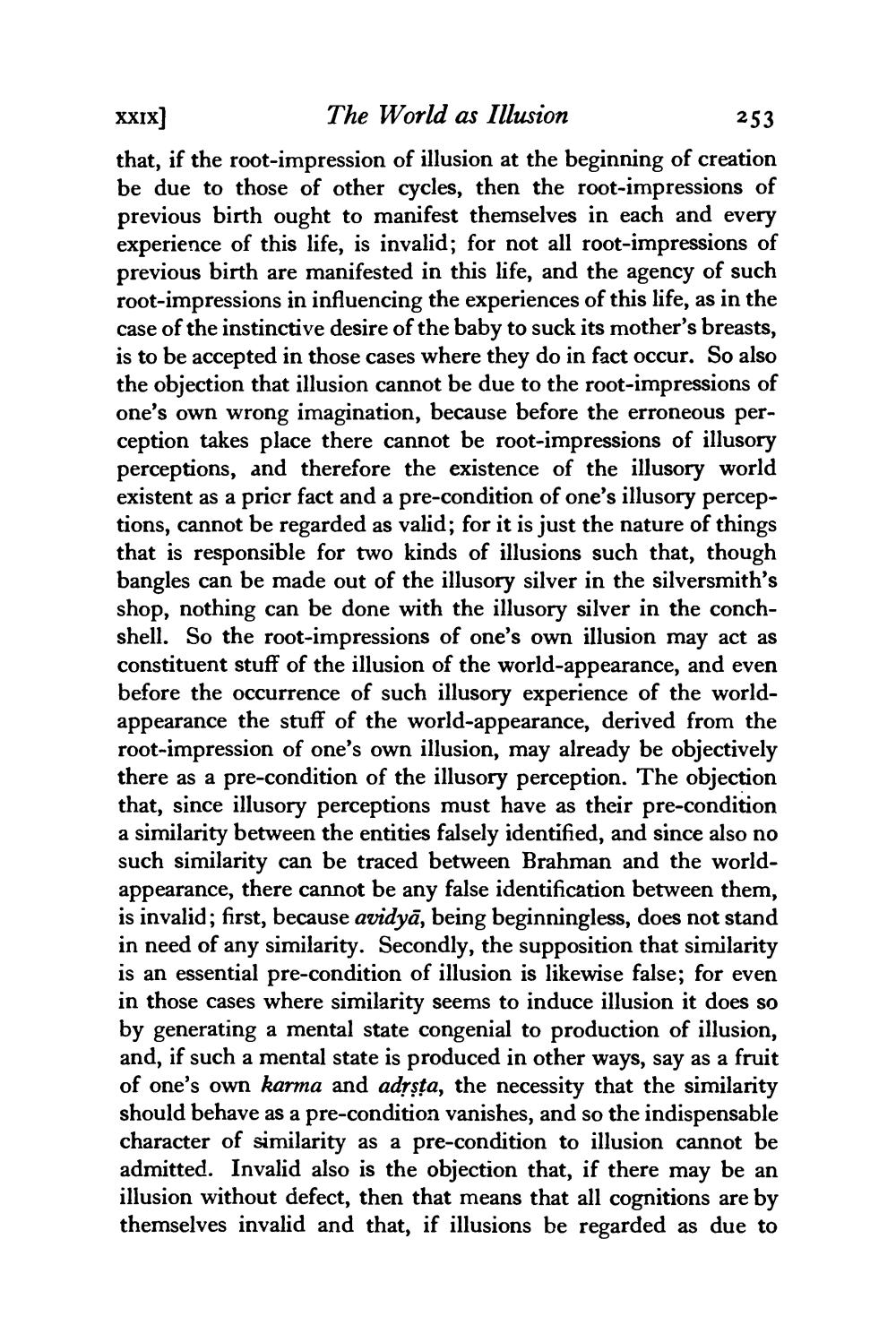________________
253
XXIX
The World as Illusion that, if the root-impression of illusion at the beginning of creation be due to those of other cycles, then the root-impressions of previous birth ought to manifest themselves in each and every experience of this life, is invalid; for not all root-impressions of previous birth are manifested in this life, and the agency of such root-impressions in influencing the experiences of this life, as in the case of the instinctive desire of the baby to suck its mother's breasts, is to be accepted in those cases where they do in fact occur. So also the objection that illusion cannot be due to the root-impressions of one's own wrong imagination, because before the erroneous perception takes place there cannot be root-impressions of illusory perceptions, and therefore the existence of the illusory world existent as a prior fact and a pre-condition of one's illusory perceptions, cannot be regarded as valid; for it is just the nature of things that is responsible for two kinds of illusions such that, though bangles can be made out of the illusory silver in the silversmith's shop, nothing can be done with the illusory silver in the conchshell. So the root-impressions of one's own illusion may act as constituent stuff of the illusion of the world-appearance, and even before the occurrence of such illusory experience of the worldappearance the stuff of the world-appearance, derived from the root-impression of one's own illusion, may already be objectively there as a pre-condition of the illusory perception. The objection that, since illusory perceptions must have as their pre-condition a similarity between the entities falsely identified, and since also no such similarity can be traced between Brahman and the worldappearance, there cannot be any false identification between them, is invalid; first, because avidyā, being beginningless, does not stand in need of any similarity. Secondly, the supposition that similarity is an essential pre-condition of illusion is likewise false; for even in those cases where similarity seems to induce illusion it does so by generating a mental state congenial to production of illusion, and, if such a mental state is produced in other ways, say as a fruit of one's own karma and adrsţa, the necessity that the similarity should behave as a pre-condition vanishes, and so the indispensable character of similarity as a pre-condition to illusion cannot be admitted. Invalid also is the objection that, if there may be an illusion without defect, then that means that all cognitions are by themselves invalid and that, if illusions be regarded as due to




